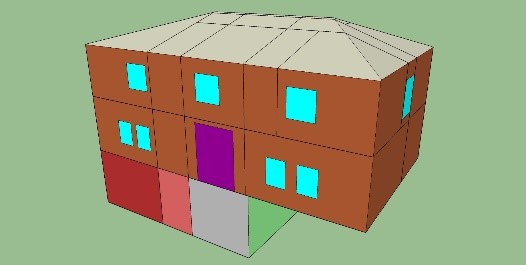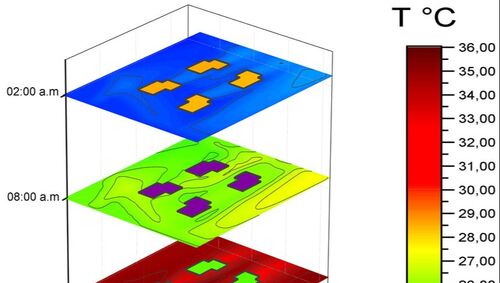GEOFITSMART GEOTHERMAL TECHNOLOGIES
The project aims at elaborating a novel design and construction strategy for making more new geothermal systems more technically and economically appealing. The team role will face the big challange to study its application in historical buildings by means of hBIM analysis. |
SWS-HEATINGDEVELOPMENT AND VALIDATION OF AN INNOVATIVE SOLAR SELECTIVE-WATER-SORBENT-BASED HEATING SYSTEMe
The project aims at developing a compact solar-assisted heating system with advanced materials and components, for covering over 60% of heating demand (both space heating and DHW) of energy efficiency single-family houses in Central/North Europe (solar fraction is further increased in South Europe to over 80%). The core of the energy system is a multimodular thermochemical seasonal heat storage based on an innovative adsorption module employing Selective Water Sorbent (SWS) and dedicated heat exchangers (HEXs) in the adsorber, evaporator and condenser. High-efficiency solar collectors with vacuum tubes will be optimized for the specific requirements of the proposed system. A back-up heater is integrated for fully covering the heat demand during winter. The overall goal is to reduce the system size and cost compared to sensible seasonal TES, while maximizing its performance, compactness and simplicity of operations. |
EAP Lab at University of Perugia
CIRIAF - Interuniversity research centre on pollution and environment Mauro Felli
Department of Engineering
Via G. Duranti 63 - 06125 - Perugia, Italy | Privacy policy
CIRIAF - Interuniversity research centre on pollution and environment Mauro Felli
Department of Engineering
Via G. Duranti 63 - 06125 - Perugia, Italy | Privacy policy




